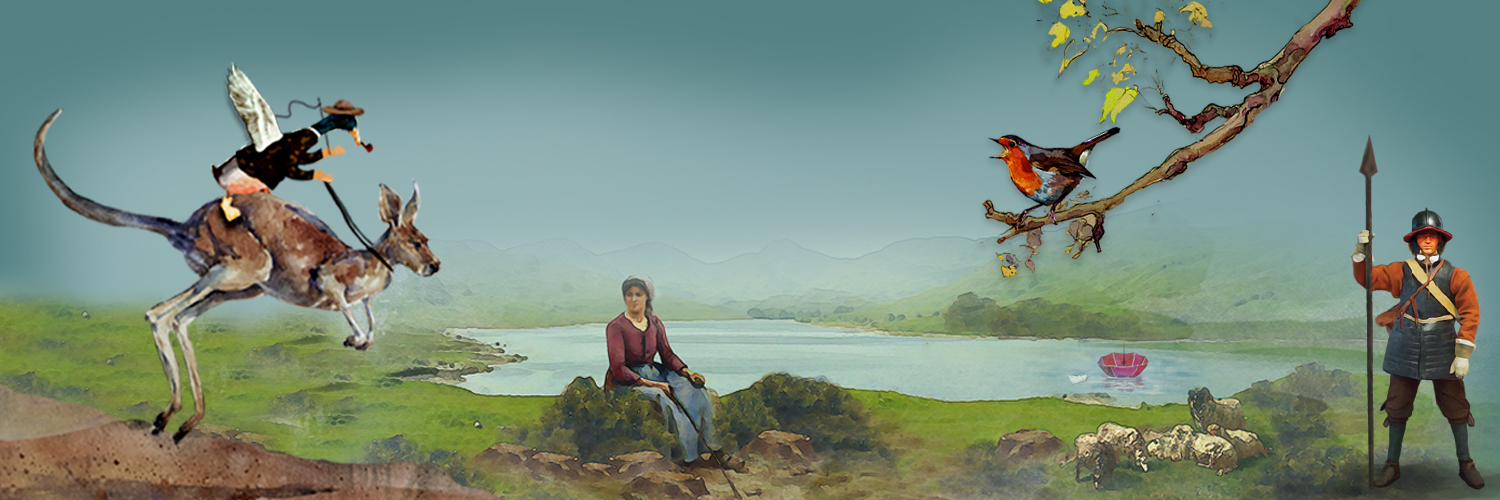
Introduction:
As a young apprentice architect, the British poet and novelist Thomas Hardy once visited a parish to supervise the restoration of a church. On his return from the parish, people noticed two things about him — a new glow in his eyes and a crumpled piece of paper sticking out of his coat pocket. That paper, it is recorded in one of his biographies, contained the draft of a poem ‘When I set out for Lyonnesse’. This poem was inspired by a visit to a place which the poet calls Lyonnesse. Lyonnesse is a mythical place referred to in the legend of King Arthur. The poet’s choice to use this setting refers to an actual place that imparts an air of magic and mysticism.
About the Poet
Thomas Hardy was born in England on June 2, 1840. When he was 22, Hardy left for London where he was influenced by the works of Charles Swinburne, Robert Browning, and Charles Darwin. Hardy tried his hand at writing when he was 17. His first novel manuscript, The Poor Man and the Lady, was rejected by several publishers. A second story, Desperate Remedies was accepted and published. Hardy wrote short stories, poems, and plays for the rest of his life. He was quite prolific during this period, writing some 900 poems on a variety of subjects.
Summary
Stanza 1
When I set out for Lyonnesse
A hundred miles away,
The rime was on the spray;
And starlight lit my lonesomeness
When I set out for Lyonnesse
A hundred miles away.
In this stanza we see that the poet set out for Lyonnesse which was situated a hundred miles away. It was winter and the weather was cold. The shine in the night sky helped him when he was lonely. He had no idea what would happen during his stay at Lyonnesse.
Stanza 2
What would bechance at Lyonnesse
While I should sojourn there,
No prophet durst declare;
Nor did the wisest wizard guess
What would bechance at Lyonnesse
While I should sojourn there.
In this stanza, the poet expresses his unsurity about what would happen at Lyonnesse. He says that he doesn’t know what awaits him at Lyonnesse. The poet says that even a prophet or a ‘wisest wizard’ would fail to predict the experience accurately and vividly.
Stanza 3
When I returned from Lyonnesse
With magic in my eyes,
All marked with mute surmise
My radiance rare and fathomless,
When I returned from Lyonnesse
With magic in my eyes.
In this stanza the poet describes what happened on his return. On his return from the parish, people noticed two things about him- a new glow in his eyes and a crumpled piece of paper sticking out of his coat pocket.
Rhyming words:
1st stanza: Lyonnesse – lonesomeness and away – spray.
2nd stanza: Lyonnesse – guess and there – declare.
3rd stanza: Lyonnesse – fathomless and eyes – surmise.
Rhyme Scheme:
When I set out for Lyonnesse a
A hundred miles away, b
The rime was on the spray; b
And starlight lit my lonesomeness a
When I set out for Lyonnesse a
A hundred miles away. b
What would bechance at Lyonnesse a
While I should sojourn there, b
No prophet durst declare; b
Nor did the wisest wizard guess a
What would bechance at Lyonnesse a
While I should sojourn there. b
When I returned from Lyonnesse a
With magic in my eyes, b
All marked with mute surmise b
My radiance rare and fathomless, a
When I returned from Lyonnesse a
With magic in my eyes. b
The rhyme scheme of the poems is abbabb.
Theme:
In the poem, the poet ‘Thomas Hardy’ tries to put us in awesome wonder by writing with ease on a simple theme – a journey to Lyonnesse which is the mythical birthplace of Sir Tristram., in England. It is believed to have been submerged by the sea. In the poem it is used as an imaginary place. The poet once visited a parish to supervise the restoration of a church.
The poem is suggestive of the spiritual benefit of visiting some places. The poet set out for Lyonnesse which was situated a hundred miles away. The ‘starlight’ lit his ‘lonesomeness’. He had no idea what would happen during his stay at Lyonnesse.
Nevertheless, the poet was sure that when he returned there was ‘magic in his eyes’. He also had the radiance which is rare and fathomless. Some places welcome us with a ‘mute surmise’. Visit to such places are really rewarding and illuminating!